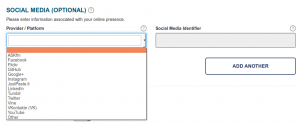We’ve heard a lot of talk in recent months about “extreme vetting” of immigrants, Muslims, and foreign visitors to the US. But what does “extreme vetting” really mean?
“Vetting” of both domestic and international travelers — making predictive pre-crime decisions as to whether or not to allow them to travel — is already extreme, and already routine.
“Vetting” means examining people and deciding who to allow, and who not to allow, to do something.
Under DHS procedures that have been in place for a decade, no airline operating to, from, or within the US is allowed to issue a boarding pass or let you on a plane unless and until it has sent your personal information to DHS and received an individualized, per-passenger, per-flight “Boarding Pass Printing Result” (BPPR) message giving the airline “permission” to “allow” you to exercise your right to travel by common carrier. The default if DHS doesn’t respond is “no”, and both the algorithms used for the decision and the data put into that algorithmic black box are secret.
What could be more “extreme”? Manual strip searches for all travelers, instead of just virtual strip searches using as-though-naked imaging machines?
But as President-Elect Trump’s “extreme” rhetoric suggests, the government’s desire for surveillance and control of our movements is insatiable. It’s always possible to make yet another mirror copy of the government’s warehouse of metadada about our movements, disseminate it more widely, and pile on another layer of pre-crime profiling algorithms. More is always better, right — especially if you call it “intelligence”?
The latest replication and propagation of travel data, and the latest layer of traveler “vetting” tools, is the so-called “Analytical Framework for Intelligence” (AFI) operated by, or under contract to, US Customs and Border Protection (CBP). As we told Spencer Woodman of The Verge for his story today about AFI:
“When Trump uses the term ‘extreme vetting’, AFI is the black-box system of profiling algorithms that he’s talking about,” says Edward Hasbrouck of the Identity Project, a civil liberties initiative that focuses on the rights of travelers. “This is what extreme vetting means.”
DHS in general, and CBP in particular, have been playing a shell game for many years with their travel surveillance and control systems.
Government copies of airline reservations (Passenger Name Records) were first claimed to be part of a system of records called TECS, then declared to be part of a “new” system of records called the Automated Targeting System (ATS), although still stored in the TECS database. (Huh?) Now an additional mirror copy of all this PNR data (still stored in TECS and still also deemed part of ATS) is being created as part of another “newer” system of records known as AFI.
AFI is one several new user interfaces and front-ends to TECS data being developed for use by multiple DHS components including US Customs and Border Protection (CBP) and Immigration and Customs Enforcement (ICE) as part of a long-term “TECS modernization” project.
If you’re confused by all the acronyms and name changes, and don’t know which government files you should ask for or worry about, that’s exactly what DHS wants.
AFI itself has changed fundamentally and for the worse in the last few months, at least if we can believe what DHS says. It’s always been a suspicion-generating and guilt-by-association machine, but now it’s a much more powerful one. More powerful, to be clear, does not mean “better” or “more accurate”. It means, “capable of placing more people under suspicion” based on more intrusive data aggregation, data mining, and profiling. Here’s how:
Read More →
